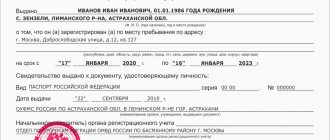What is the amount of the state duty based on the estimated value of the inheritance? In what cases is the state duty not paid? How and where can I pay the state fee?
When entering into an inheritance, you must contact a notary to obtain a special certificate, without which you simply cannot dispose of the inherited property. At the same time, although it is believed that this procedure is free, this is not entirely true. There is a so-called notary tariff. That is, when drawing up a certificate of inheritance, you will need to pay a state fee, the cost of which depends on the degree of relationship with the deceased, as well as on the estimated value of the inherited property. At the same time, both private companies and government organizations can engage in property valuation. As for payment of the state duty, for heirs of the first stage (children, parents, spouse), as well as the second stage (brothers, sisters) under the will, its amount will be 0.3% of the value of the property, but not more than 100 thousand rubles . For others, its size will be 0.6% of the value of the property, but not more than 1 million rubles.
What is state duty?
State duty is a fee that is collected from persons (both legal entities and individuals) when applying to a state or municipal body for services, the list of which is specified in the Tax Code of the Russian Federation. One of such bodies is the notary office. For the services provided by a notary, a fee is charged - a state fee.
For example, when entering into an inheritance, a state fee is paid for issuing an inheritance certificate. As well as for the provision of other related notary services.
State duty for dividing an apartment during a divorce
Example: The plaintiff filed a claim for the division of an apartment worth 1,000,000 rubles. The fee was paid to her based on the value of the claim of 500 thousand rubles. An independent assessment revealed that the cost of the apartment was 2 million rubles. The court satisfied the requirement to divide the apartment at the rate of ½ share for each. At the same time, the judge recovered the missing part of the fee from the plaintiffs and, at the same time, the entire amount of the fee for his share from the defendant.
We recommend reading: Refund of overpaid wages, budget posting
State duty for technical work of a notary
The inheritance process begins with a visit to the notary's office.
The heir submits an application for inheritance of an apartment, attaching the necessary documents (you can find out more about this in the articles “Application for inheritance”, “List of documents for inheriting an apartment”).
In the process of studying the circumstances of the inheritance case by a notary, it may be necessary to provide additional documents, contact the judicial authorities, and also obtain notarial services.
Each service provided by a notary in the process of conducting an inheritance case is paid separately! For example:
- certificate of a hidden will – 100 rubles ;
- acceptance of a hidden will – 100 rubles ;
- announcement of the will to the heirs - 300 rubles ;
- confirmation of signature authenticity – 100 rubles ;
- ensuring the safety of inherited property – 600 rubles .
Prices are not final and may vary depending on the notary's fees and service region.
What is the amount of the state duty based on the estimated value of the inheritance?
In each of the above options, when contacting a notary office, you will need to provide documents confirming this fact. How is the state duty paid if there are several heirs?
Often several people act as heirs at once.
In this case, the shares transferred to inheritance may or may not be equal. However, each heir pays for the work of the notary and the state fee individually. This is also not affected by how inheritance occurs by will or by family relationship.
How and where can I pay the state fee?
Payment of the state duty for inheritance is made directly at the notary office itself. As for the inheritance procedure itself, it will be considered completed only after the fee has been paid.
It is from this moment that the certificate issued by the notary will have legal force and will allow the heir to dispose of the inherited property at his own discretion.
It is also important not to delay the time of entry into inheritance.
Since after the expiration of the period, which is 6 months from the date of death of the testator, the notary has the right to refuse to issue a certificate of ownership of the property of the deceased. In this case, there is only one way out - the heir goes to court.
And this, in turn, requires additional costs and time. If you are interested in information about inheritance or have other legal issues, you can contact our company for advice.
Amount of state duty for issuing a certificate of inheritance
The amount of the state duty for inheriting an apartment in 2020 is determined by the Tax Code of the Russian Federation. According to paragraph 22 of Article 333.24 of the Tax Code of the Russian Federation, the amount of state duty for inheritance is determined based on two factors:
- the cost of inherited property (in this case, an apartment);
- relationship between the testator and the heir.
How is the state duty calculated?
According to the above norm of tax legislation, for issuing a certificate of inheritance for an apartment you need to pay:
- 0.3% of the cost of the apartment , but not more than 100 thousand rubles. This method of calculation applies to heirs who are close relatives of the testator - spouse, children (including adopted children), parents, brothers and sisters;
- 0.6% of the cost of the apartment , but not more than 1 million rubles. This method of calculating state duty applies to other heirs.
The amount of the state duty is determined the same way, regardless of how the inheritance occurs - by law or by will.
State duty for dividing an apartment during a divorce
- If the price of the claim does not exceed 20,000 rubles, you should go to the magistrate’s court, having previously paid a state fee in the amount of 4% of the cost of the claim, but a minimum of 400 rubles. However, it is unlikely that when dividing an apartment it will be possible to limit oneself to such insignificant costs, because the assessed value of real estate is always quite high;
- If the estimated value of the property is 20-100,000 rubles, you will need to pay 800 rubles and 3% of the amount over 20,000 rubles. If the value of the property is over 50,000 rubles, the claim should no longer be filed in the world court, but in the district court;
- If the estimated value of the property is 100-200,000 rubles, payment is subject to 3,200 rubles and 2% of the amount over 100,000 rubles;
- If the real estate valuation is from 200,000 to 1,000,000 rubles, you will need to pay a state duty in the amount of 5,200 rubles and 1% of the amount over 200,000 rubles;
- If real estate is valued above 1,000,000 rubles, the state duty will be 13,200 rubles and 0.5% of the amount over a million. But the upper limit has been determined - 60,000 rubles.
We recommend reading: Children's benefit Novosibirsk
Valuation of inherited property
Based on the above, a logical question arises: how is the cost of an apartment determined, on the basis of which the amount of state duty is calculated?
What does the legislation say about this? According to the provisions of Article 333.25 of the Tax Code of the Russian Federation, the cost of an apartment (as well as other real estate objects) is determined...
- state bodies (organizations) that carry out registration of real estate objects at their location;
- non-governmental organizations licensed to carry out valuation activities.
Today you can get an estimate of the cost of an apartment...
- in the Bureau of Technical Inventory (BTI);
- in the Cadastral Chamber;
- from independent appraisal organizations.
Depending on where the heir goes to assess the value of the apartment , he will have an assessment:
- inventory (contained in the technical documentation for the apartment);
- cadastral (contained in the cadastral passport for the apartment);
- market (contained in the act of market assessment of the value of the apartment).
What is the difference between them? The main difference is the cost of the apartment. The lowest is the inventory valuation, the highest is, of course, the market valuation. Based on the estimated value, the amount of state duty will be calculated (using the formula described above). Therefore, it is in the interests of the heir to obtain an inventory or cadastral valuation.
The heir has the right to choose where and how his apartment will be valued. Officials do not have the right to force the heir to choose a specific assessment. If the heir provides several documents containing different estimated values of the apartment (for example, a certificate from the BTI and a cadastral passport), the smaller one is taken to calculate the state duty.
Note! The assessment of the value of the apartment must be made on the date of death of the testator.
To calculate the state duty, only the value of the property that is registered in the state register and indicated in the inheritance certificate is taken into account. There is no need to evaluate the remaining property.
Benefits and exemption from payment of state duty
Payment of the state fee is mandatory for all heirs, regardless of family ties with the testator.
However, the law specifies the circle of persons entitled to benefits when paying state fees. And even a complete exemption from payment.
Article 333.35 of the Tax Code of the Russian Federation lists persons exempt from paying state fees for performing notarial acts:
- Participants of the Great Patriotic War;
- Knights of the Order of Glory;
- Heroes of the USSR;
- Heroes of the Russian Federation.
Article 333.38 of the Tax Code of the Russian Federation establishes benefits for paying state fees for issuing a certificate of inheritance:
- Half (50%) is paid by disabled people of groups I and II;
- The following are completely exempt from paying state duty:
- Heirs of the apartment, if they lived in it with the testator before his death and continue to live there after the death of the testator;
- Heirs of the deceased (or deceased within a year after the circumstances indicated below) - when performing state, civil and public tasks.
- Heirs of the politically repressed;
- Heirs of sums of money (savings deposits, funds in bank accounts, salaries, pensions, insurance payments);
- Minor heirs (at the time of opening of the inheritance);
- Incompetent heirs.
To be exempt from paying the state fee, you must provide the notary with a document confirming this right (certificate, certificate, certificate).
State duties for transactions with apartments 2020 and the legal status of real estate
To obtain a document of title, you should contact the government agency in charge of accounting and control over real estate transactions and confirm the ownership of the apartment. This step will protect your proprietary rights and guarantee the security of transactions related to registered property. The procedure is also important for the state. It allows you to create a system of civil legal circulation, keep control over the movement of funds (state duty) and ensure transparency in transactions.
How to pay the state fee
Inheriting an apartment can be considered a fait accompli after paying the state fee and receiving a certificate.
As a rule, the state fee is paid directly at the notary's office (in cash) or at a bank branch using the details specified by the notary (by bank transfer).
To confirm the fact of payment, you need to provide the notary with the corresponding receipt. Attention!
- Due to frequent changes in legislation, information sometimes becomes outdated faster than we can update it on the website.
- All cases are very individual and depend on many factors. Basic information does not guarantee a solution to your specific problems.
That's why FREE expert consultants work for you around the clock!
- via the form (below), or via online chat
- Call the hotline:
- Moscow and the Region
- St. Petersburg and region
- FREE for a lawyer!
By submitting data you agree to the Consent to PD Processing, PD Processing Policy and User Agreement.
Anonymously
Information about you will not be disclosed
Fast
Fill out the form and a lawyer will contact you within 5 minutes
Tell your friends
Rate ( 1 ratings, average: 5.00 out of 5)
Author of the article
Irina Garmash
Family law consultant.
Author's rating
Articles written
612
Calculator for calculating state fees for court and for registration of rights
Calculator for calculating state fees in a court of general jurisdiction and a magistrate's court
is the simplest form and allows you to calculate the amount of state duty to the court when filing a claim of a property nature that is subject to assessment. The online state duty calculator is based on a unique formula for calculating state duty. The amount of the state duty in court is directly related to the size of the claim price, therefore, to calculate the amount of the state duty for the court, you need to enter the value of the amount of the claim price in the upper field of the calculator form, after which the value of the state duty amount corresponding to the entered amount of the claim price will appear in the lower field.









